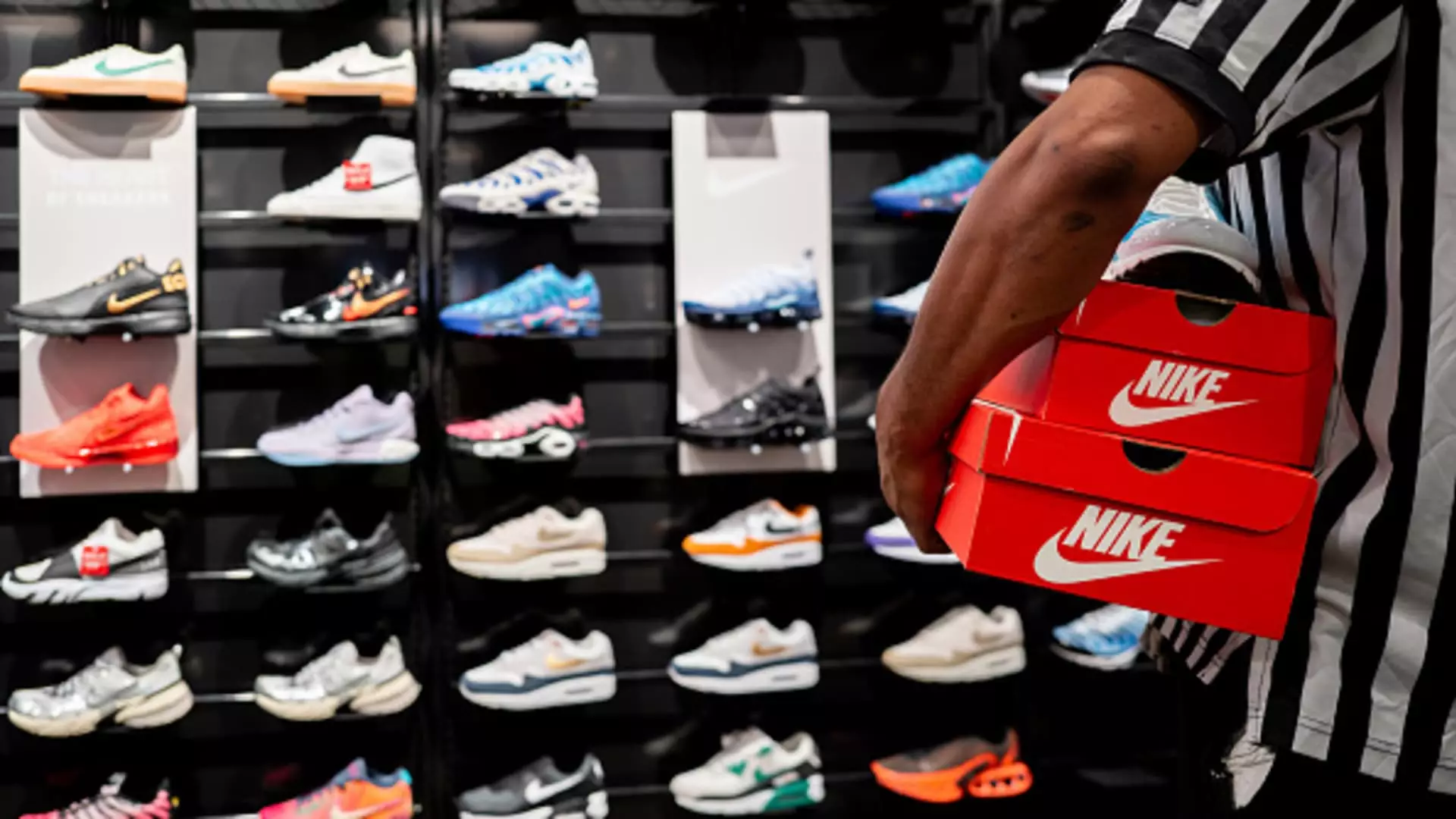As Nike prepares to release its quarterly earnings report, scheduled for Tuesday, a cloud of anxiety looms over investors and analysts alike. With expectations set particularly low, the results are anticipated to reflect a remarkable decline. This comes on the heels of significant leadership changes within the company as the corporation faces heightened scrutiny regarding its performance and strategic direction. The leadership transition from outgoing CEO John Donahoe to veteran Elliott Hill underscores a critical juncture for the global footwear giant.
Analysts’ Forecasts Signal Challenges Ahead
Consensus estimates from LSEG indicate that Nike’s earnings per share (EPS) for the fiscal first quarter of 2025 are projected to stand at 52 cents, coupled with revenues expected to reach $11.65 billion. The forecast extends to a 10% drop in sales compared to the same quarter last year, while profits are likely to plummet nearly 45%. These staggering figures illustrate the struggles Nike has faced in an increasingly competitive market where innovation seems to have stalled. The forthcoming report serves as a focal point for many industry experts, who are keenly observing the company’s response to internal challenges and increasingly aggressive competitors.
The departure of CEO John Donahoe, who will officially step down on October 14, marks a significant shift in Nike’s operational strategy. While under Donahoe’s leadership the brand witnessed impressive annual sales growth of over 31%, critics argue that this success was largely driven by legacy products such as the Air Force 1 and Air Jordan lines rather than true innovation. Analysts and stakeholders are now looking toward Hill—who spent over three decades at Nike before his retirement—as a potential catalyst for rejuvenating the company’s creative direction and rebuilding crucial relationships with wholesale partners that have soured during Donahoe’s tenure.
The challenge ahead for Hill is immense. Analysts expect that the new CEO must revitalize Nike’s innovation pipeline, mend ties with wholesalers, and uplift employee morale after a turbulent period of layoffs and perceived cultural breakdown within the company.
The wider context of the U.S. footwear market further complicates Nike’s outlook. Despite a growing trend toward athletic footwear, projected growth is expected to be modest—at only 2% for general footwear sales in 2024, as per reported estimates. This stagnation highlights the difficulties facing not just Nike, but the entire industry as consumers appear more reluctant to splurge on discretionary items. These economic hurdles exacerbated by a cooling consumer demand make it imperative for Nike to recalibrate its offerings and marketing strategies in order to regain market traction.
The situation is especially precarious in China, which represents Nike’s third-largest revenue market. The company experienced a slowdown earlier this year, hinting at economic difficulties in the region. Fortunately, recent stimulus measures introduced by China’s central bank may signal a path to recovery. While the fiscal first quarter results will not incorporate these developments, insights shared in the earnings call regarding the performance following these measures will be key to determining investor sentiment.
Nike’s journey through these turbulent times is indicative of a larger narrative in the retail sector—balancing economic pressures while maintaining brand identity and innovation. As we await the earnings report, all eyes will be on how the new leadership under Hill outlines its strategy moving forward and how the company plans to overcome the significant obstacles it faces. The results of this forthcoming report will not only affect stock prices but will also set the tone for Nike’s operational strategy in the upcoming fiscal year.
As Nike navigates a complex landscape marked by economic challenges and internal transitions, its upcoming quarterly earnings report will provide crucial insights into both the company’s trajectory and the broader health of the athletic footwear market. Investors and industry observers are left with a sense of guarded anticipation as they await indications of recovery, innovation, and renewed competitive spirit though tangible results will ultimately dictate the company’s next moves.

